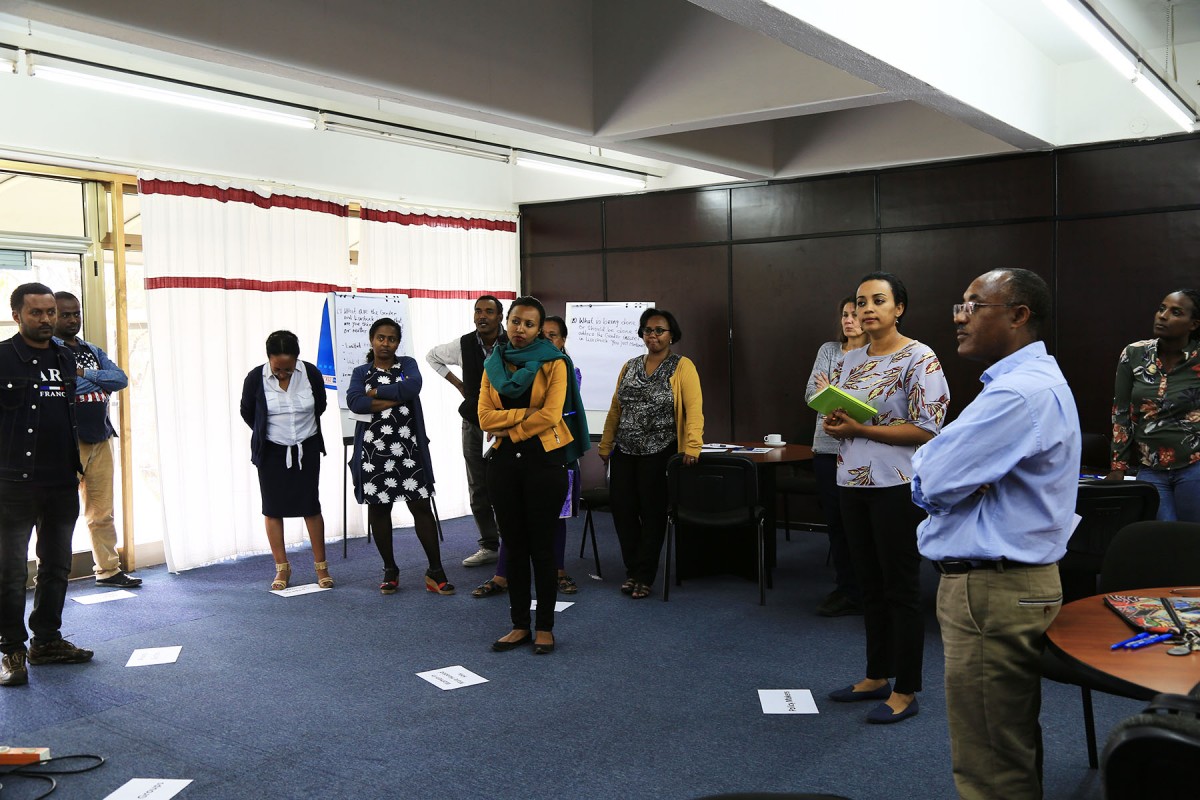A consultative workshop on gender hosted by the International Livestock Research Institute (ILRI) and the International Centre for Agricultural Research in the Dry Areas (ICARDA) identified gaps in livestock research and development and investible options that will inform the work of the CGIAR Research Program on Livestock in Ethiopia.
The workshop that was held on 16 October 2018 at the ILRI campus in Addis Ababa also sought to:
- share and obtain feedback on the findings of the literature review on gender in livestock production in Ethiopia, and
- identify what has been done, what is being done and what should be done on gender and livestock by different stakeholders in the country.
Prior to the workshop, Wole Kinati (research associate at ICARDA) and Annet Mulema (social scientist gender at ILRI) had carried out a systematic literature review to document information on gender issues in livestock in Ethiopia. They presented their findings, which included identifying researchable gaps, potential opportunities and investible options for women and men livestock keepers to the participants for review and validation.
The priority gaps for gender in livestock research that were identified included:
- A need to understand the intra-household gender dynamics/relations in livestock production systems and the role of men in addressing gender inequalities.
- A need to understand how gender relations shift as a result of livestock interventions, the scale of production and the context in which this happens.
- Capacity development support to women that are involved in the livestock sector specifically, developing their leadership and management skills and improving their access to inputs.
- Strengthening gender capacity of livestock service providers to be able to diagnose gender issues and implement gender-sensitive interventions.
The investible options identified included:
- Gender capacity development integrated into livestock research and development interventions to strengthen livestock service providers’ capacities and women’s agency.
- Building on traditional mechanisms for accessing livestock assets e.g. gifting of animals to foster women’s control over livestock.
- Introducing livestock-based gender transformative approaches and investigating what this should entail.
- Strengthening institutional linkages among livestock service providers so that they can offer complementary services in a holistic manner.

Critical gender and livestock issues were voiced by stakeholders, who included the Livestock program partners in Ethiopia, representatives from government and non-governmental organizations and development experts, during the workshop. The critical issues raised included lack of start-up capital to engage in livestock-related businesses, the absence of female researchers in livestock research, lack of understanding of gender roles in livestock, lack of gender capacity among extension workers, researchers and policymakers, and poor understanding of gender issues in livestock markets, among others.
Stakeholders also presented their livestock-related projects and the level of gender integration in their project interventions. Participants echoed the lack of consistency in mainstreaming gender in livestock projects and the need to apply lessons learned from past projects when planning new ones.
The workshop brought together 13 (9 women) participants from the SNV Netherlands Development Organisation, the Ethiopian Institute of Agricultural Research, the Agriculture Transformation Agency, the Southern Agricultural Research Institute, the Ministry of Agriculture and Livestock Resources, the International Centre of Insect Physiology and Ecology, the Ethiopian Livestock Trade Association and the Addis Ababa University.
Download the workshop report.
